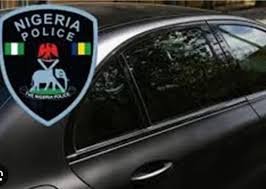The Federal High Court in Warri, Delta State, has restrained the Nigeria Police Force and the Inspector-General of Police, Kayode Egbetokun, from enforcing the controversial tinted glass permit policy until ongoing lawsuits challenging its legality are determined.
The ruling, delivered on Friday, October 3, in Suit No. FHC/WR/CS/103/2025, followed by a motion filed by human rights lawyer John Aikpokpo-Martins, who questioned the constitutionality of the policy. Justice of the Federal High Court ordered the police to respect judicial processes and suspend enforcement nationwide pending the outcome of the case.
Speaking after the ruling, senior lawyer Kunle Edun, who led the petitioner’s legal team, hailed the decision as a landmark step in safeguarding the rule of law. He stressed that the court’s intervention was necessary to protect citizens’ rights while the substantive case is being considered.
The Nigerian Bar Association (NBA) also waded into the controversy, warning the police against flouting court orders. Through its Section on Public Interest and Development Law (SPIDEL), the NBA revealed that another case, Suit No. FHC/ABJ/CS/1821/2025, is already before the Federal High Court in Abuja, challenging the same policy. The association expressed concern that despite being served with court processes on September 25, the police went ahead to announce nationwide enforcement on October 2.
Read also:
- Nigerians kick as police ban use of tinted glasses in FCT
- Police crackdown on illegal tinted glass, covered number plates in Bauchi
- Police bans tinted glasses, covered number plates
“We urge the Nigeria Police to uphold the rule of law and stop enforcing a policy under judicial review,” the NBA stated. It also warned that officers who disregard court orders, including Force spokesperson CSP Benjamin Hundeyin, risk being cited for contempt.
The tinted glass permit policy has long been controversial. In 2022, the police suspended the issuance of permits after widespread reports of extortion and harassment at checkpoints. However, in April 2025, the Force resumed the scheme through the Police Specialised Services Automation Project (POSSAP) and later set a compliance deadline of October 2.
The police have defended the policy, citing the Motor Vehicles (Prohibition of Tinted Glass) Act of 1991 and national security concerns. But critics, including civil society groups and legal experts, argue that many cars now come with factory-installed tinted windows and that the policy opens fresh avenues for corruption.
With the latest court ruling, motorists across Nigeria can temporarily breathe a sigh of relief as the battle over the legality of the tinted glass permit shifts fully to the courtroom.






